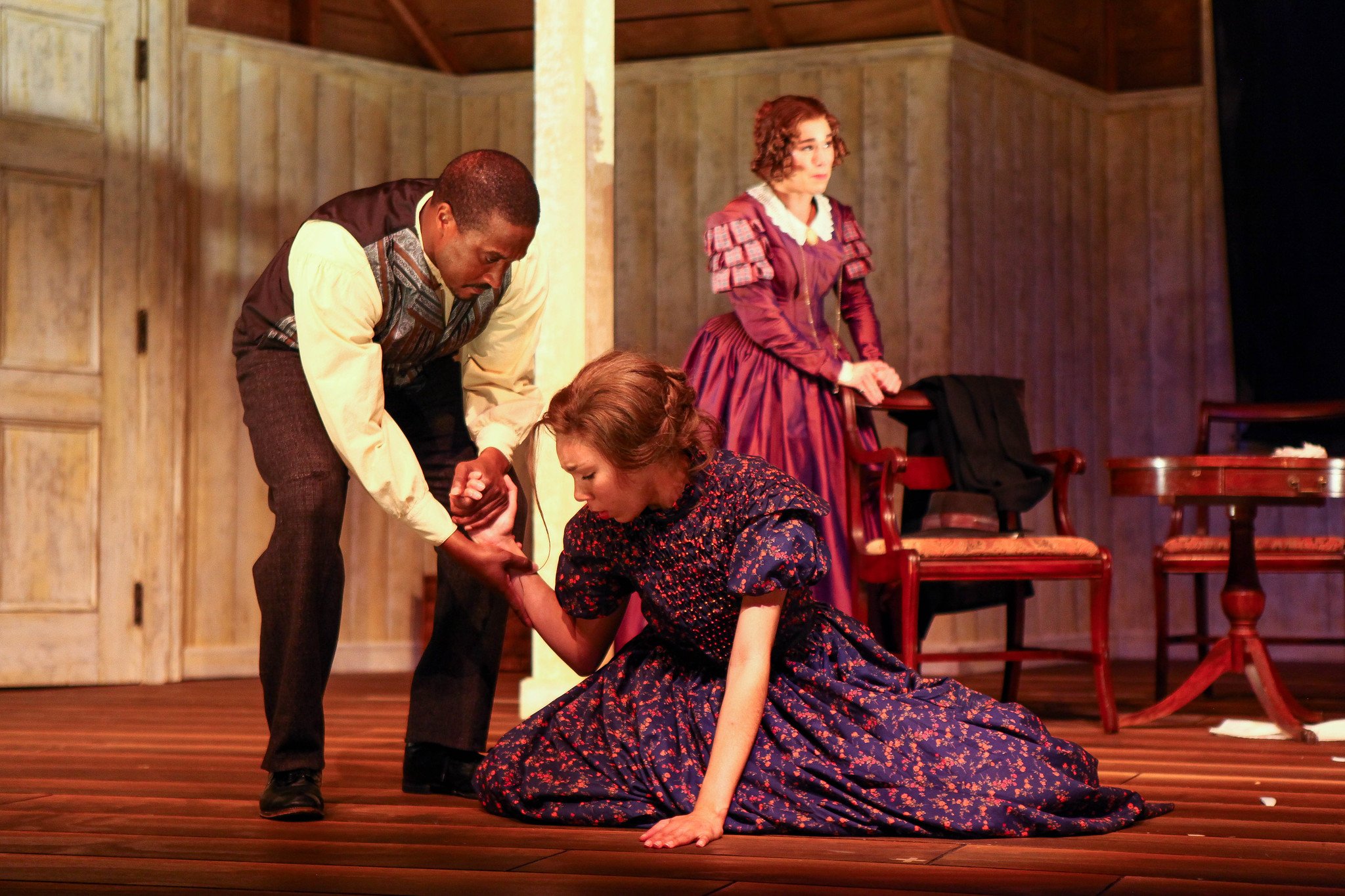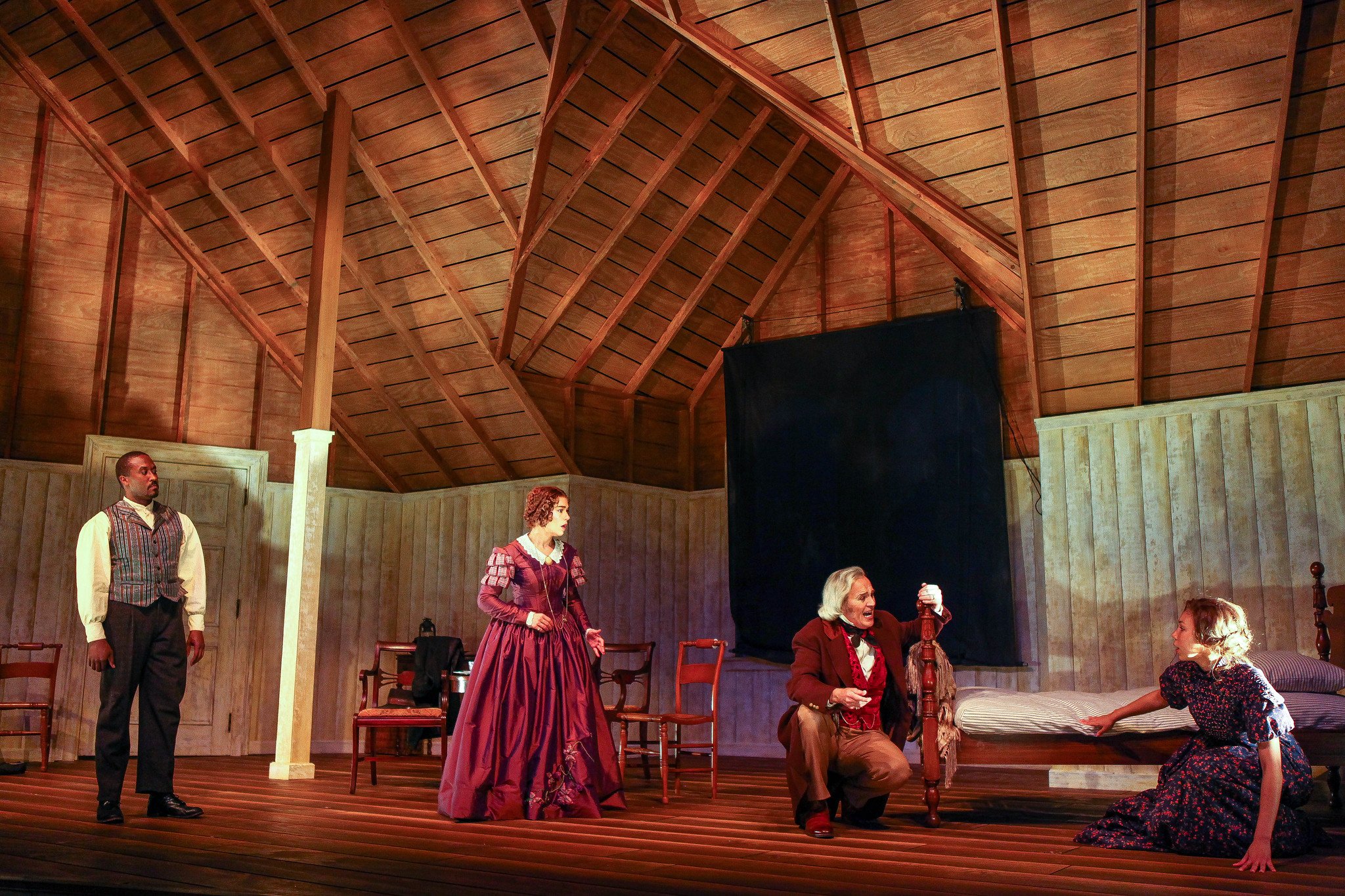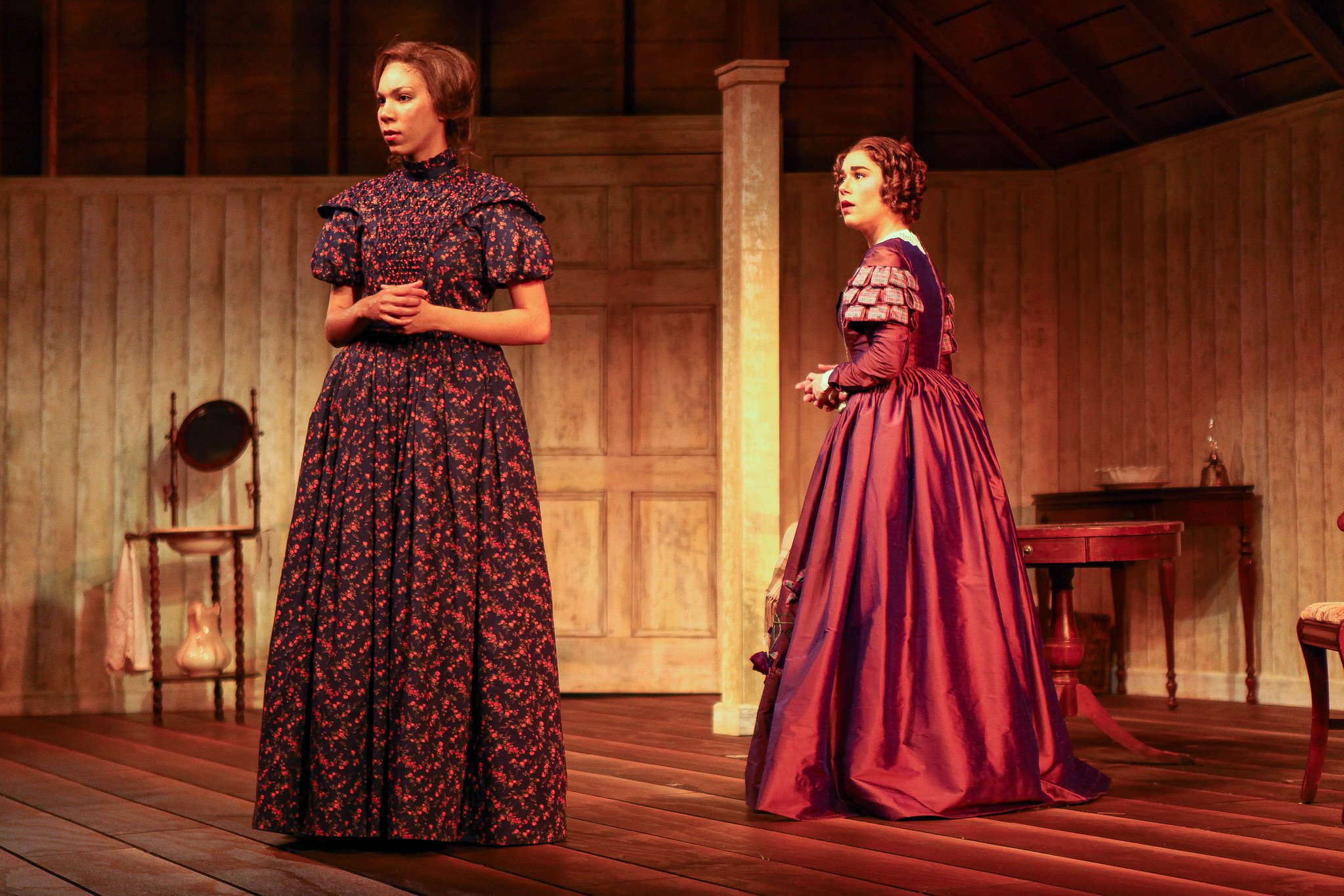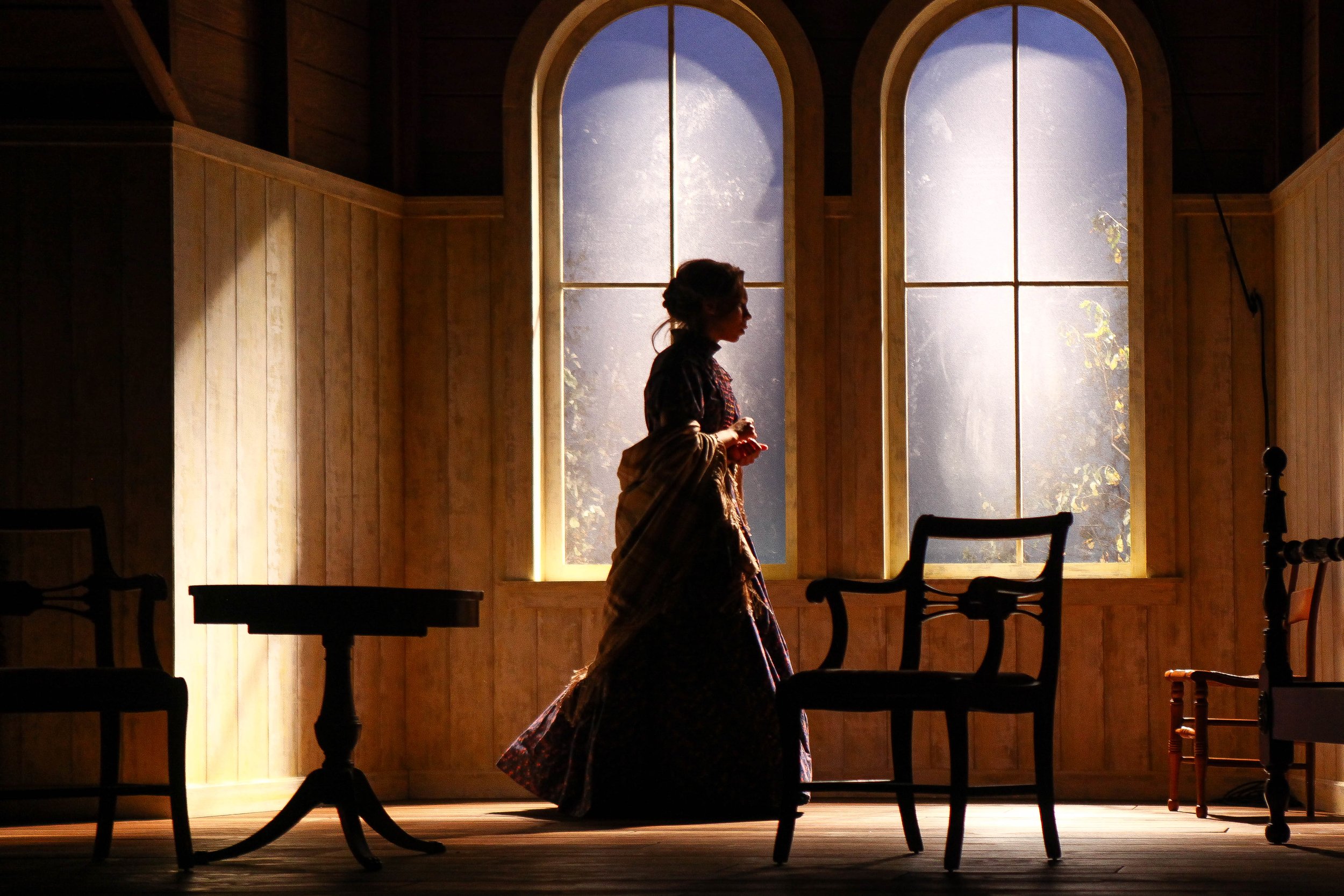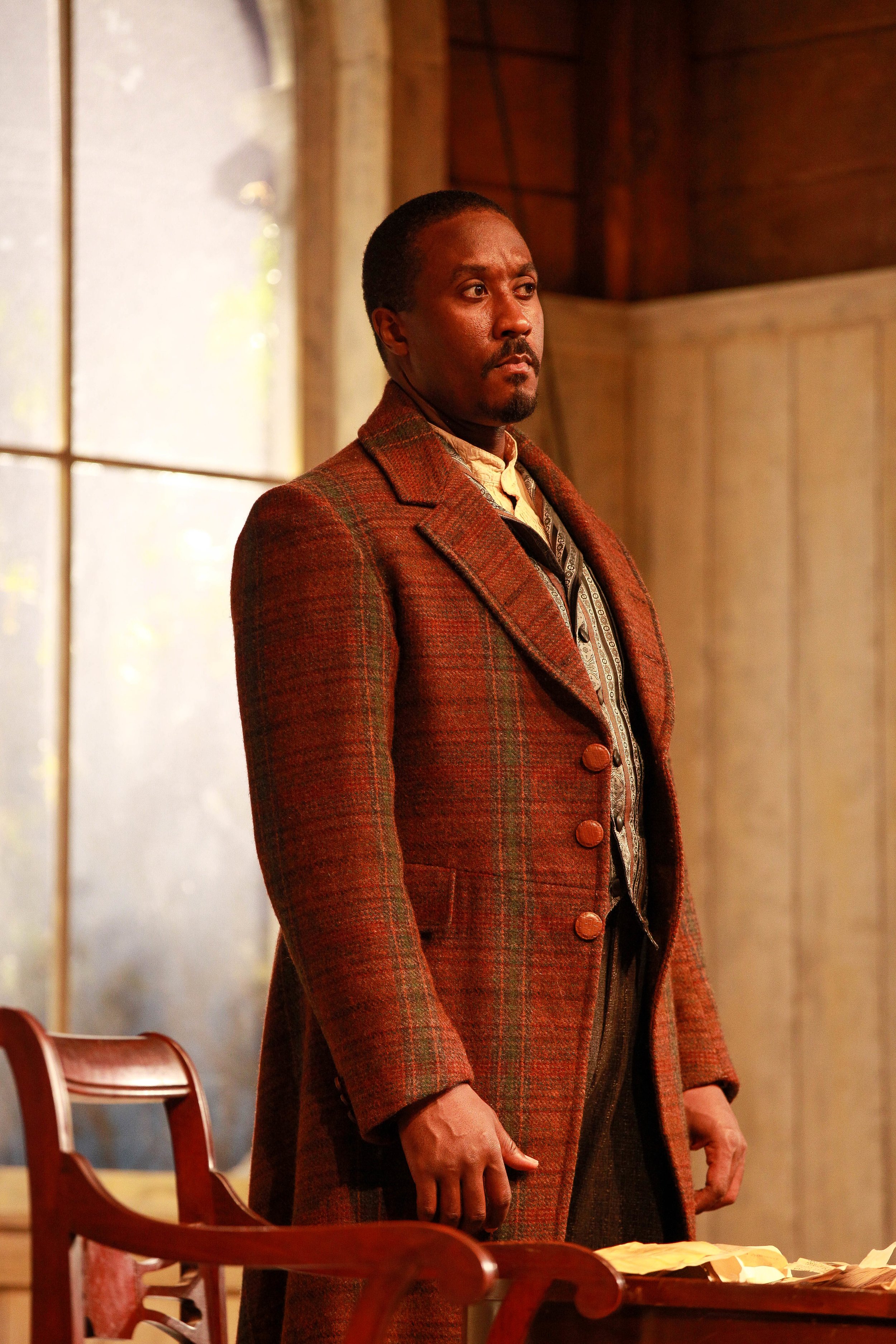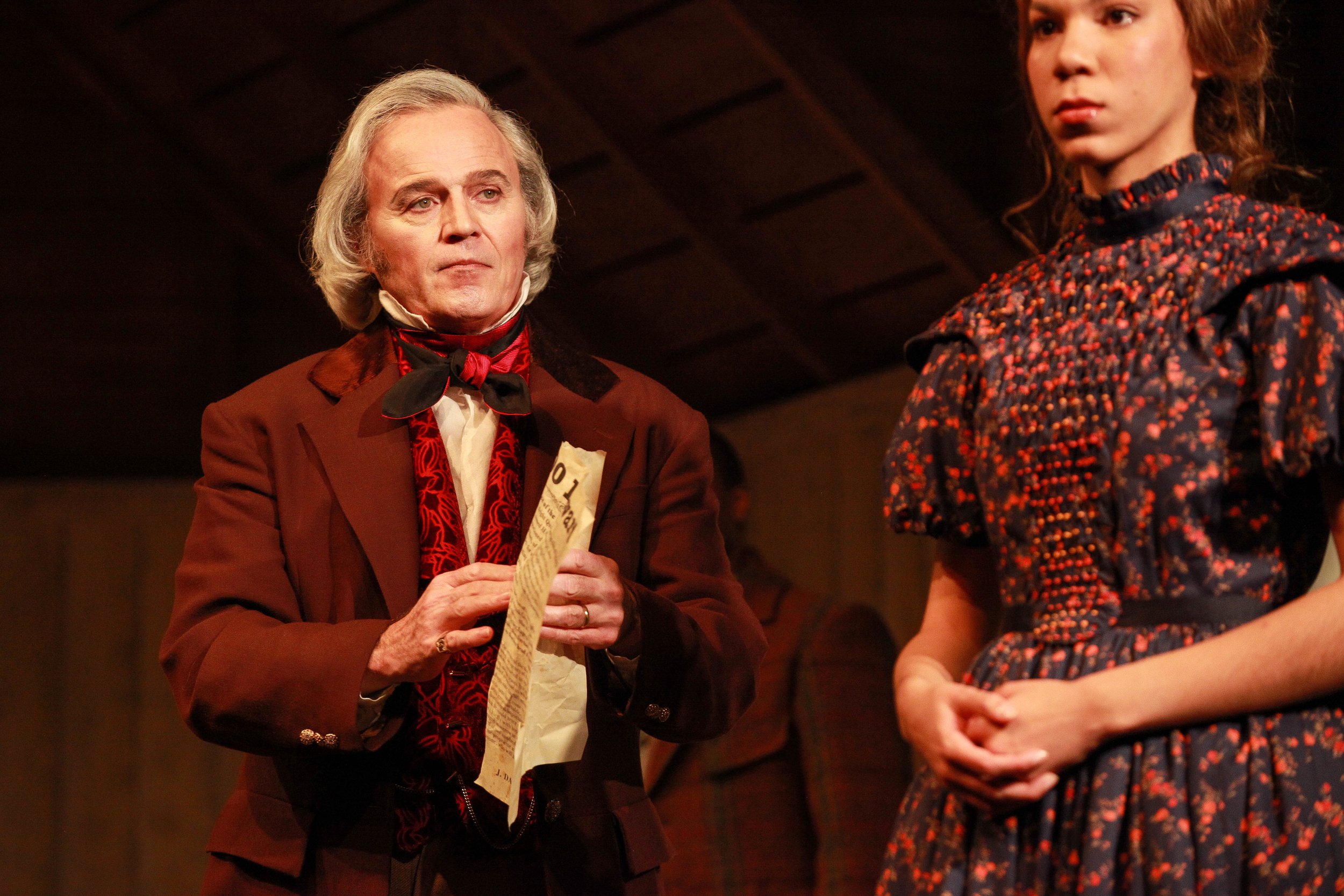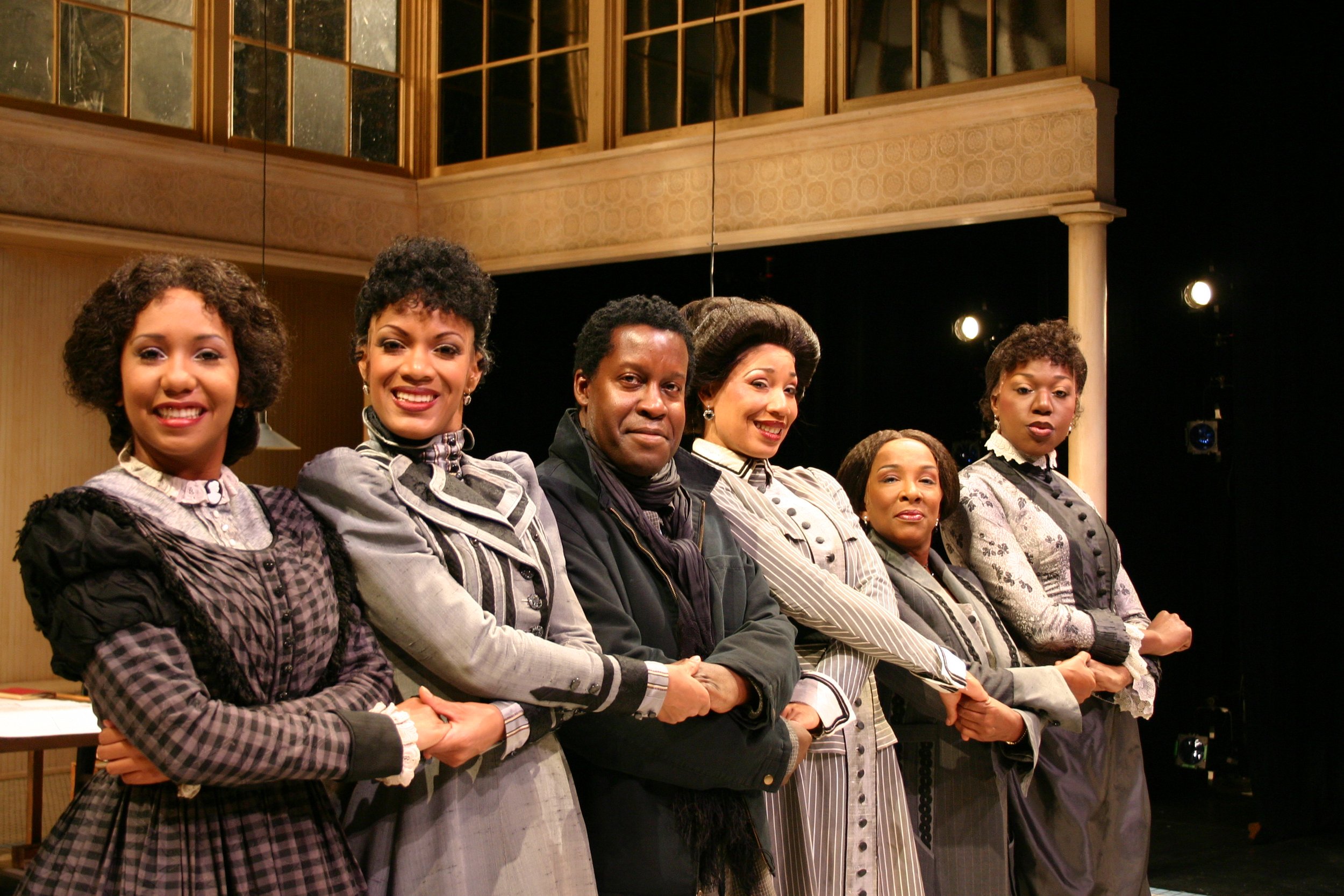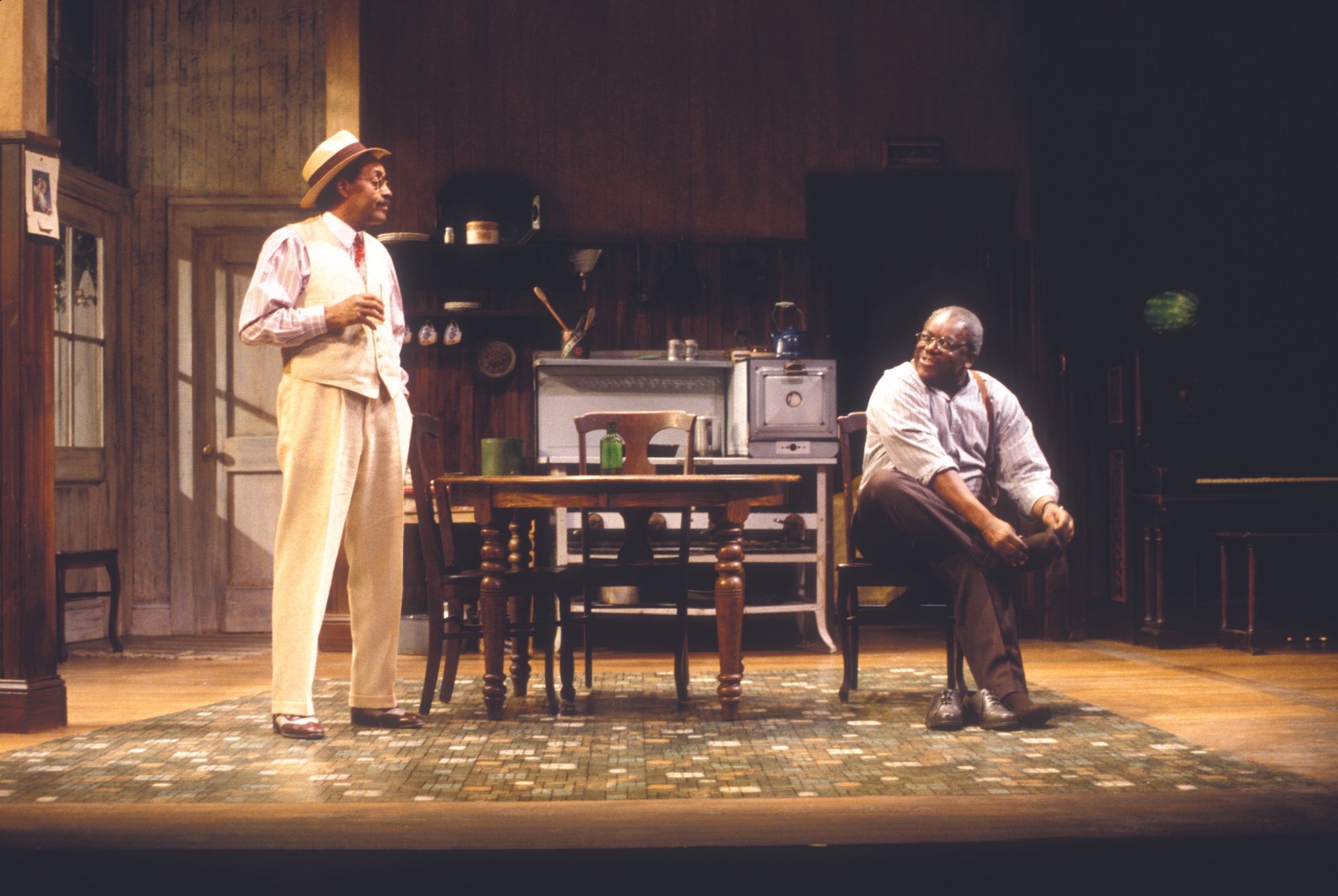
TAZEWELL THOMPSON SUCEEDS ARTHUR STORCH
Tazewell Thompson.
“I couldn’t be more pleased that Tazewell Thompson has accepted the position. He is a serious artist without taking himself seriously. He has a sense of irony and wit. He is visionary with his head in the clouds but his feet on the ground.” – Arthur Storch
In 1992, after a six month search, a new artistic leader was announced as 38-year-old Tazewell Thompson became Syracuse Stage’s second artistic director. Thompson was not a stranger to Syracuse Stage audiences having appeared in the second production of The Butterfingers Angel (1978) and having directed How the Other Half Loves (1989). For four years prior to accepting the position, Thompson had served as an artistic associate at Washington, D.C.’s Arena Stage where he scored popular and artistic triumphs with such productions as August Wilson’s Fences starring Yaphet Kotto and The Glass Menagerie with Ruby Dee. His other directing credits included Chicago’s Goodman Theatre, The Cleveland Play House, The Huntington Theatre Company, and the Goodspeed Opera House. With his appointment, Thompson became one of only three Black artistic directors among the 65 member institutions of the League of Resident Theatres (LORT). In a speech given when he was introduced to the Syracuse community, Thompson directly addressed that point:
The cast of Constant Star with Director Tazewell Thompson. Season: 2003 - 2004. Photo: Alex Ottaviano
“It needs to be said out loud and so I am saying it, out loud. You have done a remarkable thing by appointing a Black artistic director to run your theatre. You may not even think you have done a remarkable thing, and if that is so, it is even more remarkable. You have done what they call in the theatre these days, the buzzword, ‘non-traditional casting.’
“You are saying we have looked for the best person we could find to run our theatre and we have found him and we have chosen him, and we are naming and claiming him, regardless of his color or because of it. You are saying that we at Syracuse are aware that the world is moving and turning and that you have decided to move and turn with it and not stand alone, as the parade passes you by.”
“I cannot promise to deliver success, but I can commit to the pursuit of excellence. I can commit myself to making Syracuse Stage fulfill every iota of its potential as an art and social service. I vow to commit to the creation of a variety of theatrical experiences for a culturally, politically, and socially diverse audience. To provide an atmosphere in which artists can create compelling work. I commit myself to the research and development of new work as well as the presentation of contemporary and classical plays.”
With the artistic leadership transition from Arthur Storch to Tazewell Thompson, Jim Clark assumed greater responsibility for the company and was given the title producing director. He also succeeded Storch as chair of the Department of Drama. Though officially retired from Stage, Storch remained through the 1992/1993 season to allow Thompson to fulfill his commitment to direct two shows for Arena Stage. Storch’s first assignment was to direct the season opener, Ken Ludwig’s broad comedy Lend Me a Tenor. Later in the season he would conclude his service to Syracuse Stage by directing Clifford Odets’ Awake and Sing. The playwright that Storch first presented twenty seasons earlier provided his final directorial effort for Syracuse Stage.
Thompson made his directorial debut as artistic director with the final show of the season, Jar the Floor by Cheryl L. West. The play was a clear reflection of Thompson’s artistic aspirations: “My choice of plays will be based on who I am and how I was brought up. You can’t leave the real world and step over a threshold when you go into the theatre,” he told The Post Standard. That vision carried through on the stage: “Thompson’s triumph is building and maintaining that universal sense of reality,” wrote Suzanne Connelly in her review of the play in The Herald Journal.
The 1993/94 season was the first full season selected by Thompson. In making the season announcement, he noted: “A theatre that does not take risks, that is safe, is stale and selfish. It is in the dark of the theatre that we do not lose, but find ourselves and celebrate ourselves.” Though reflecting Thompson’s own beliefs and goals, his words echoed the guiding principles of his predecessor Storch. In 1989, Storch told The Post Standard: “I always felt that theatre should reflect what is going on in the world, not just provide escapist entertainment. Theatre should give us clarity, not just pleasure, to make us think about phenomena in new ways. It’s part of theatre’s job.”
Members of the company of The Butterfingers Angel. Season: 1994 – 1995. Director: Tazewell Thompson. Photo: Douglas Wonders.
Chris Tashima in Laurence Yep’s "Dragonwings." Season: 1994 – 1995. Director: Phyllis S. K. Look. Photo: Douglas Wonders.
Members of the company of The Butterfingers Angel. Season: 1994 – 1995. Director: Tazewell Thompson. Photo: Douglas Wonders.
Jim Ponds as Wining Boy and Robert Colston as Doaker in August Wilson’s "The Piano Lesson." Season: 1995 – 1996. Director: Claude Purdy. Photo: Douglas Wonders.
Ron Cephas Jones and Harriett D. Foy in Holiday Heart. Season: 1993 – 1994. Director: Tazewell Thompson. Photo: Douglas Wonders.
Thompson included two world premieres in the season, N. Scott Momaday’s The Indolent Boys and Cheryl L. West’s Holiday Heart. With a cast that included Keith Randolph Smith and Ron Cephas Jones, Holiday Heart transferred to New York where it enjoyed a successful run at The Manhattan Theatre Club. The play’s transfer to New York and its reception there prompted an editorial in The Post-Standard acknowledging the wider impact of the production: “The New York production brings prestige to Syracuse Stage. By extension, Syracuse Stage has brought prestige to this region.” The editorial also noted that The Wall Street Journal had urged members of Congress “to see the drama . . . before trying to reform welfare.” Overall, the Post-Standard editorial encouraged the community to take pride in the work of Syracuse Stage: “The theatre proved it can compete with the best productions in the world, before the toughest critics anywhere.”
A part of history lost and a part revisited marked the 1994/95 season. Before the season opened, in the summer of 1994, Gerald F. Reidenbaugh, who had first dreamed of a professional theatre at 820 East Genesee Street, passed away. After opening the season with A Midsummer Night’s Dream and From the Mississippi Delta, Thompson revived The Butterfingers Angel in a production featuring Ron Palillo of Welcome Back Kotter fame. Playwright William Gibson attended a performance and wrote to The Post-Standard to express his pleasure with the production and to note the play’s unique place in Stage history: “Arthur Storch staged its first professional production in the small theatre that now bears his name. Some years later a second production in the old Regent movie house adjoining served as the kickoff of the funding campaign to convert the Regent into the present theatre. And last month the play enjoyed the happy distinction of having come to life in each of the three theatres that have housed Syracuse Stage. For what it’s worth, my personal pleasure in these productions has been unqualified, and never more glowing than with Taz Thompson’s, whose directorial hand so captured the spirit in which I wrote the play he might have been spying over my shoulder.” The season also included the American premiere of Canadian playwright Vittorio Rossi’s The Last Adam and Lawrence Yep’s Dragonwings.
Thompson’s tenure at Syracuse Stage was short. He resigned in the summer of 1995 before the start of the 1995/96 season. Thompson would find continued success as a very much in demand creator and freelance director of opera and theatre. He has directed at opera houses around the world, including New York City Opera, Teatro Real, La Scala, L’Opera Bastille, among others, and received Emmy nominations for Best Director and Best Production for Porgy and Bess broadcast live from Lincoln Center. He has directed frequently at the Glimmerglass Festival, where in 2019 his opera Blue (libretto and direction) had its world premiere. With music by Jeanine Tesori, Blue won the Music Critics Association of North America award for Best New Opera in 2020. While Covid impacted several scheduled productions of Thompson’s opera, Blue had its European premiere at the Dutch National Opera in Amsterdam and subsequently performed at the English National Opera. He returned to Syracuse Stage during the 2003/04 season to direct his play Constant Star and in the 2018/2019 season to direct the world premiere of Kyle Bass’s Possessing Harriet.
Kyle Bass and Tazewell Thompson on the set of Possessing Harriet on 2018. Set Design: Donald Eastman.
With Thompson’s departure from Syracuse Stage, Jim Clark stepped in to fill the gap in artistic leadership. As a search commenced for a new artistic director, some favorite directors from past seasons returned to keep the 1995/96 season on track. Libby Appel took on Neil Simon’s Broadway Bound and Claude Purdy directed August Wilson’s The Piano Lesson. William Woodman, who had previously directed Long Day’s Journey into Night and A.R. Gurney’s The Cocktail Hour, staged Shakespeare’s Twelfth Night for the holidays. Sadly, Woodman passed away in New York shortly after the play opened. New to Syracuse Stage that season was John Rando who directed David Ives’ riotously funny All in the Timing. Rando would find success with several Broadway productions and win a Tony for his direction of Urinetown, The Musical. The search for Thompson’s successor continued well into the season with more than 170 candidates from around the country and abroad expressing interest. In the end, the search committee settled on a candidate close to home, Robert Moss.
